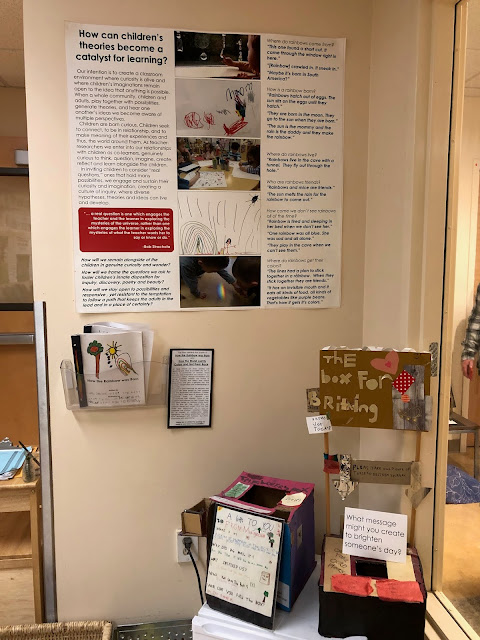QUESTIONS THAT CONNECT PEDAGOGY, PEOPLE AND EXPERIENCE
During our recent trip to visit the Opal School in Portland, USA, we spent time in dialogue and encountering threads of experience between Empathy, Agency and Changemaking. The study tour retreat was designed for International School educators to engage in dialogue, observation and reflection and come to know the Opal School and its pedagogy, digging below the surface, drawing out links and questions for our own practice and contexts.
On reflection there are many things that we observed that have sat rumbling in my consciousness over the past few weeks, many of which will be digested slowly in the fullness of time, however one recurring thought that comes to the front of my mind is the significance of a ‘coherent sense of pedagogy’.
As we explored the connections between agency, empathy and pedagogy we watched children and educators engaged in inquiry learning, united by a thorough understanding of the value and power of physical, aesthetic, and pedagogical environments. Each learning space had its own sense of identity and purpose, each learning community different to the next, yet the coherence of experience between all of the classrooms and spaces seemed deeply intentional and deliberately unhurried. What was most interesting was the skillful use of questions as the connective threads of experience. We found questions everywhere; questions as the organizers of curriculum, questions as the connectors of participants, questions that invited the visitors with a sense of inclusion and curiosity, questions as the drivers of learning and questions as the bonds between community members.
Opal School caters for children from three years of age through to the end of Primary School (Year 5), a vast spectrum of practice in many schools, yet here, in every space, the walls and artefacts were lined with complex questions and evidence of rigorous thinking. The documentation panels explored unfolding inquiry journeys; where every question mattered, was followed and led to new twists and turns in learning. It made me wonder about the agency of the question itself as a powerful force for learning.

As visitors to the school we encountered an open dialogue and iterative process of socio-constructivist learning made visible through the many layers of the environment’s ‘communicative skin’ (Tedeschi, 2003). Laced with the memories, histories, journeys and stories of shared inquiry, the classroom environments allowed us to come to know the pedagogy of the group slowly as we read documentation, observed classes in action and then shared dialogue with educators after each session in the school.
It was powerful not only in its advocacy for children and their learning, but also for the courageous stance taken by all teachers at the Opal School to create spaces for learning that contest more pervasive models of traditional American elementary school learning. The connectedness of pedagogy and continuity of experience between all of the classrooms at Opal School was quite remarkable, leaving us all with much to digest and contemplate.
When Sir Ken Robinson said “education is a sophisticated human process, not an impersonal delivery system” (Robinson as cited in Keene & Glover, 2015), he offered a challenge to educators to think about the significance of our humanity in all aspects of education. Reflecting on our time at the Opal School led me to question how highly agentic spaces communicate different messages to their inhabitants and how these spaces speak loudly about the human dimension, ‘ the way learning happens in this place with these people’.
Of our own spaces we might ask:
What messages are we, consciously and unconsciously, communicating through the spaces that we create?
How do others ‘read’ and engage with our spaces?
What questions underpin the experience in our spaces, providing opportunities for choice, wonder and delight?
What sense of agency do our spaces honour?
Whose agency matters in playful environments and when/how is it valued?
Fiona
Tedeschi, M. (2003). Lecture on Environment as the third teacher. Lecture given during Reggio Emilia International Study Tour: Italy. November, 2003
Keene, E. O., & Glover, M. (Eds.). (2015). The teacher you want to be: Essays about children, learning, and teaching. Heinemann.
Tedeschi, M. (2003). Lecture on Environment as the third teacher. Lecture given during Reggio Emilia International Study Tour: Italy. November, 2003



Comments
Post a Comment